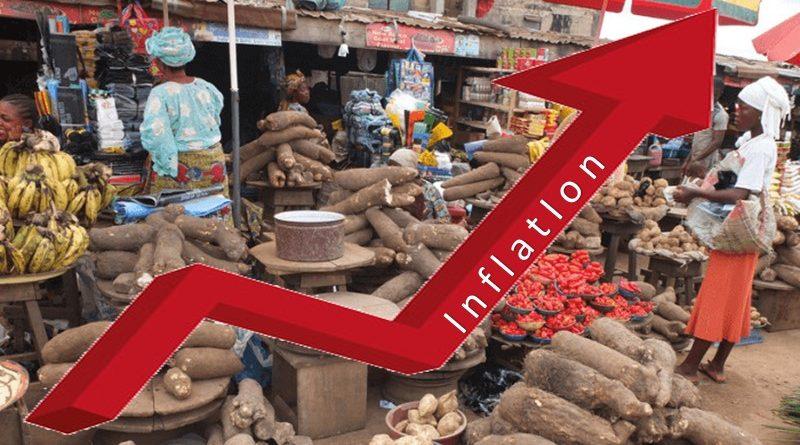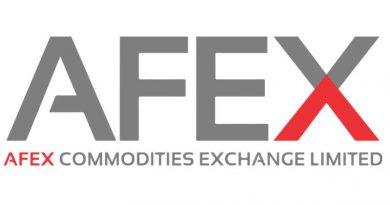Inflationary pressure and weaker purchasing power continue to grip Nigeria’s economy
Inflationary pressures continue to grip Nigeria’s economy. According to recent data released by the National Bureau of Statistics (NBS), headline inflation rose by +98 bps, reaching a staggering 29.9% y/y. This uptick was mirrored in the month-on-month figures, where headline inflation
increased by +35 bps to 2.64%. One of the primary drivers is the exponential rise in food prices, which recorded an increase of +148 bps to 35.41% y/y. Essential commodities such as bread, cereals, oil, meat, and fruits witnessed substantial price hikes, amplifying the burden on
consumers already grappling with economic uncertainties.
Core inflation, which excludes volatile food and energy prices, also experienced an uptick, rising by +53 bps to 23.59% y/y. Various sectors felt the heat of inflation, including transportation, medical services, housing, and pharmaceutical products, reflecting the pervasive nature of rising
prices across the economy.
The housing and transport segments witnessed particularly sharp increases, with housing-related expenses soaring by 24.7% y/y and 2.1% m/m, while transport costs surged by 25.9% y/y and 1.3% m/m. Such substantial hikes in essential expenses directly impact consumers’ purchasing
power, constraining their ability to spend on discretionary items and affecting overall consumption patterns.
In January ’24, the price increases recorded in the health segment were 2.2% m/m and 24.6% y/y. Pharmaceuticals and medical services have repeatedly featured as leading drivers of core inflation. Furthermore, last month, increases of 0.4% m/m and 8.6% y/y were recorded for the recreation
and culture segment within the inflation basket. Despite the general weakening in purchasing power, anecdotal evidence points towards visible appetite for outdoor activities.
Meanwhile, Nigeria’s hospitality industry (similar to some other sectors) is currently experiencing economic scarring. Hotels listed on the Nigeria Stock Exchange recorded profit in 2023. In January, price increases of 1.6% m/m and 24.2% y/y were recorded in restaurants and hotels segment
Inflationary pressures are further compounded by structural issues plaguing the economy, including high logistic costs, inadequate infrastructure, storage challenges, exchange rate fluctuations, elevated costs of petroleum products, and insecurity, particularly in food-producing regions. These underlying structural impediments contribute to supply chain disruptions, thereby exerting upward pressure on prices.
The CBN/MPC faces the daunting task of curbing inflation while fostering economic stability, a rate hike is widely expected at the impending monetary policy committee meeting, scheduled for next week. As inflation erodes purchasing power, investors tend to demand higher yields to compensate for the diminished real returns on fixed income securities. Consequently, fixed income market rates, such as bond yields, tend to rise in response to heightened inflation expectations, reflecting the increased risk premium associated with lending in an inflationary environment.
On a separate note, businesses operating in this challenging macroenvironment should prioritize cost management initiatives to mitigate the adverse effects on profitability. This may entail streamlining operations, optimizing supply chains, and renegotiating contracts to contain expenses. Furthermore, remaining vigilant and agile in responding to market dynamics by leveraging market intelligence to identify emerging trends and consumer preferences is important. Diversification strategies, both in terms of product offerings and market segments, can help mitigate risks associated with inflation-induced volatility in specific sectors.
In January, the restaurants and hotels segment experienced price increases of 1.6% month-on-month and 24.2% year-on-year. The economy is facing additional challenges due to structural issues such as high logistic costs, inadequate infrastructure, storage challenges, exchange rate fluctuations, elevated costs of petroleum products, and insecurity in food-producing regions. These underlying problems are causing disruptions in the supply chain, leading to higher prices.
The Central Bank of Nigeria/Monetary Policy Committee (CBN/MPC) is faced with the difficult task of controlling inflation while promoting economic stability. It is widely expected that there will be a rate hike at the upcoming monetary policy committee meeting next week. As inflation reduces purchasing power, investors demand higher yields to compensate for the lower real returns on fixed income securities. Consequently, fixed income market rates, including bond yields, tend to increase in response to expectations of higher inflation, reflecting the increased risk associated with lending in an inflationary environment.
In this challenging macroenvironment, businesses should prioritize cost management initiatives to mitigate the negative impact on profitability. This may involve streamlining operations, optimizing supply chains, and renegotiating contracts to control expenses. It is also important for businesses to remain vigilant and adaptable in response to market dynamics by utilizing market intelligence to identify emerging trends and consumer preferences. Diversification strategies, both in terms of product offerings and market segments, can help mitigate risks associated with inflation-induced volatility in specific sectors.
On the policy front, it is essential to have prudent fiscal management and targeted interventions to help ease the burden on consumers, especially those who are most vulnerable in society. The implementation of social safety nets, such as cash transfer programs and food subsidies, can offer relief to households struggling with high prices, thus lessening the negative socio-economic effects of inflation. Projections indicate that poverty levels will rise in 2024, with worries persisting about weak consumer spending and purchasing power. This situation is worsened by the lack of a proportional increase in wages (and in some cases, salaries), which would typically help counterbalance the inflationary pressures on the economy. Looking forward, inflation is expected to remain high at double-digit levels, with some slight decreases anticipated due to favorable base effects and strict monetary policies. SOURCE: Coronation Merchant Bank




